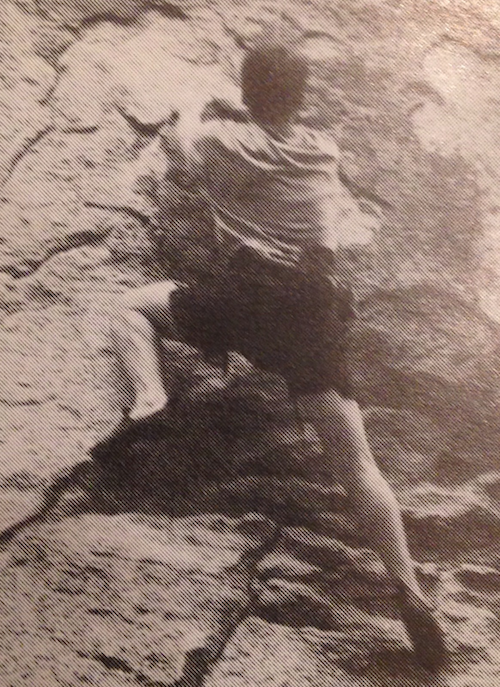One of the themes of this blog, I think, is “respect your subconscious.”
As in; How the hell did my churning credit cards in order to gather frequent flyer miles lead me to reorganize my entire financial life and really start focusing on maximizing my own “happiness?”
This is a puzzle, to be sure. And the main reason it is a puzzle is that no rational person would have ever have selected such a route towards a such a goal.
It’s too circuitous and indirect.
If I were to have consciously chosen to get my financial life in order, I would’ve probably have come up with a list something like this.
1. Read a book about making smart financial decisions.
2. Come up with an action plan to incrementally get me closer to the ideal financial behavior.
3. Try my hardest to implement the plan with effort, effort, effort.
So what are the assumptions buried beneath the surface of such a plan?
One assumption is that human beings are rational actors.
Another assumption, then, is that achievement is the result of slavishly sticking to a well thought out and rational plan.
And the final assumption, which I would call the dark underbelly of our prevailing logic, is that poor decision-making is the result of the failure to consciously implement a good plan or to come up with a reasonable plan in the first place. It is quite simply a failure of discipline.
Which is, I believe, nonsense.
When I think about periods of growth in my life, they were more often born out of compulsion, than will.
I craved great pizza on a guttural level, so I stopped at nothing (and in so doing probably endangered my own property) in order to learn how to make it. I couldn’t help myself. And I continue to tinker.(Because I still can’t help myself.)
When I started seriously playing golf during medical residency, I was playing on the local public course in Chicago. I became so obsessed with it that would find myself on a closed golf course in winter with a wind chill of -12° (literally) searching for my tee shot in a snowbank. And I got down to a single digit handicap in two or three years. I literally couldn’t help myself.
Or even this blog. I’m so interested in these ideas that I simply must have an avenue to express them. So almost every night I write a blog post and cobble it together. This is not a business proposition for me. I’m not putting in the hours for secondary gain. I’m doing it because I just can’t help myself.
And in all of these instances I am only playing. I’m not working.
A better example is my best friend from medical school, Noah.
Noah is probably better at rockclimbing, then I will ever be at anything.
To call his climbing a compulsion, is a vast understatement.
Every aspect of his life including his marriage and family life is tightly intertwined with his love of climbing.
And to be around him is to get sucked into the vortex of his enthusiasm. It is contagious. And if you hang out with him at all, you may very well find yourself clinging to small cracks and features high up on a rock wall even though you’re not that strong, you’re marginally afraid of heights, and you lack any real natural talent for the sport.
MD2 in the Vortex
Which is of course why he’s a world-class climber. His compulsion has forced him to climb on rocks over and over and over again. His love of climbing is insatiable and powerful. And so his climbing strength is forever growing.
And isn’t this true of all genius?
Wasn’t Einstein’s brilliance, the result of his complete inability to stop thinking mathematically and philosophically? (While his classmates were working hard to learn the teacher’s structured lessons, he was “daydreaming,” in the corner of the classroom! Slacker.)
Wasn’t Picasso’s artistic revolution the result of his of irrepressible compulsion to create art over and over and over again and never stop as long as he was alive?
And what made Ted Williams hit bucket after bucket after bucket after bucket of baseballs until his hands bled and then wake up the next day and do it over and over and over again. Is that any rational way to act?
I would argue that it isn’t rational at all. It is genius. And genius is in fact the subconscious compulsion to start playing, and never stop.
Which is not to say that the conscious mind is not important.
Discipline can achieve an awful lot.
Almost anyone who decides to run a marathon, can do so, just by making himself run day after day, whether he likes it or not.
And one can organize their life in such a manner that they show up for work every day, and do their best on the job through dedicated effort, and taming of the will, and the boxes are checked, and the job gets done, and they get paid, and their career advances. And they go further than most because they work harder than most, and are more disciplined. But that is where it ends. This approach does not hold such great promise for transcendence.
And the way that such an approach feels to me, on an intuitive level, is shallow, and constrained. It feels like homework. And I don’t want to believe that life is just a rote journey powered by busywork.
And yet, even in this reflection, it occurs to me, that my conscious mind might be playing tricks on me.
It seems that for the most part, my subconscious mind is doing the living, and my conscious mind is telling me pretty stories after the fact.
And the piece that I really haven’t figured out, is how to harness the subconscious mind to achieve conscious goals.
I’m still working (playing?) on that one.
And if there’s a certain circularity to the argument I’m about to make, please forgive me.
It occurs to me, that keeping a laser like focus on your own happiness (the ultimate act of self absorption) May just be the best way to engage your own subconscious, and to grow in unpredictable and powerful ways.
With this approach, perhaps I am learning that conflict makes me unhappy.
Perhaps I’m discovering the closing my heart off to others around me does not protect me from pain.
Perhaps I am finding that creating something is productive in and of itself. (And criticizing end products is not.)
Perhaps I am discovering that by constantly trying new things that I’m not really good at, I can grow in unexpected (And productive!) ways.
But one thing I’m fairly sure of is that I’ll keep on thinking and writing about this puzzle.
Because I just can’t help myself.


4 Responses to “Below the Surface”